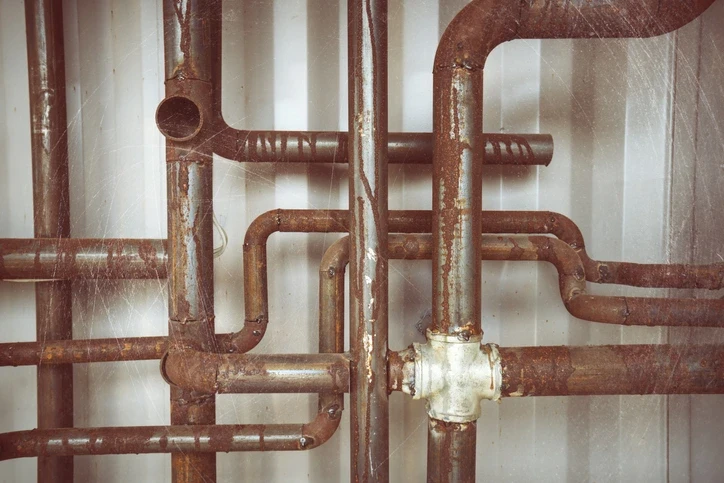
Guard Against Rust: Effective Prevention and Removal Tips
Rust is a common issue around homes, especially in areas with high humidity or exposure to the elements. It not only affects the aesthetics of your property but can also compromise the structural integrity of metal surfaces. Learn how to prevent and remove rust effectively to keep your home looking its best.
Understanding the Causes of Rust
Before delving into prevention and removal methods, it’s crucial to understand why rust forms. Rust, scientifically known as iron oxide, occurs when iron or steel comes into contact with oxygen and moisture. This chemical reaction weakens the metal, leading to the familiar reddish-brown corrosion. Areas prone to moisture, such as bathrooms, kitchens, and outdoor fixtures, are particularly susceptible.
Preventive Measures: Keep Moisture at Bay
The primary key to preventing rust is moisture control. Regularly inspect areas prone to dampness, such as basements and crawl spaces. Ensure proper ventilation to reduce humidity levels. In bathrooms and kitchens, use exhaust fans to expel moist air. For outdoor metal fixtures, consider applying a waterproof sealant or rust-resistant paint to create a protective barrier against the elements.
Routine Cleaning: A Simple Yet Effective Practice
Regular cleaning is an effective preventive measure against rust. Dust and dirt can retain moisture, accelerating the corrosion process. Wipe down metal surfaces with a dry, clean cloth regularly. For more stubborn dirt or grime, use a mild detergent or a mixture of vinegar and water. Thoroughly dry the surfaces after cleaning to eliminate any remaining moisture.
Protective Coatings: Adding an Extra Layer of Defense
Applying protective coatings to metal surfaces is a proactive step in rust prevention. Choose coatings like rust-resistant paints or clear sealants specifically designed for metal. These coatings create a barrier that shields the metal from oxygen and moisture, hindering the rusting process. Ensure proper surface preparation before applying coatings for maximum effectiveness.
Regular Inspections: Early Detection is Key
Frequent inspections allow for early rust detection and prompt intervention. Regularly check metal surfaces for signs of rust, especially in hidden or less accessible areas. Address any small patches immediately by cleaning and applying rust converter solutions or inhibitors. Early intervention prevents the spread of rust and helps maintain the integrity of the affected metal.
Rust Converters and Inhibitors: Halting the Progress
Rust converters are chemical solutions that transform rust into a stable compound, halting further corrosion. Apply rust converters to affected areas following the manufacturer’s instructions. Rust inhibitors, on the other hand, act as a protective coating that hinders the development of rust. Both products are valuable tools in preventing rust from spreading.
Proper Storage: Shielding Metal Items Indoors
For metal items stored indoors, proper storage practices are crucial in preventing rust. Ensure that metal tools or objects are completely dry before storage. Consider using moisture-absorbing products, such as silica gel packets or rust-inhibiting papers, in storage containers to reduce humidity. Store items off the floor to prevent contact with potential moisture.
Outdoor Maintenance: Shielding Metal Fixtures
Outdoor metal fixtures, such as railings, gates, and garden furniture, are exposed to the elements and require special attention. Apply a rust-resistant paint or coating before the onset of harsh weather conditions. Regularly clean and inspect outdoor metal surfaces, especially after storms or heavy rainfall. Promptly address any signs of rust to prevent further deterioration.
Rust Removal Techniques: Restoring Metal Surfaces
If rust has already taken hold, several effective removal techniques can help restore metal surfaces. Use a wire brush or sandpaper to remove surface rust manually. For more extensive rust, consider chemical rust removers, following the product instructions carefully. Be sure to wear protective gear, such as gloves and goggles, when using chemical solutions.
Professional Assistance: Expert Solutions for Severe Cases
In cases of severe rust or when dealing with intricate metal structures, seeking professional assistance is advisable. Professional rust removal services can effectively address extensive corrosion and provide specialized treatments to restore metal surfaces. Consult with experts to determine the most suitable approach for your specific situation.
Implementing these preventive measures and removal techniques will help you guard against rust and preserve the beauty and functionality of metal surfaces around your home. For more in-depth insights on how to prevent and remove rust, visit thietbidinhvithongminh.com.
